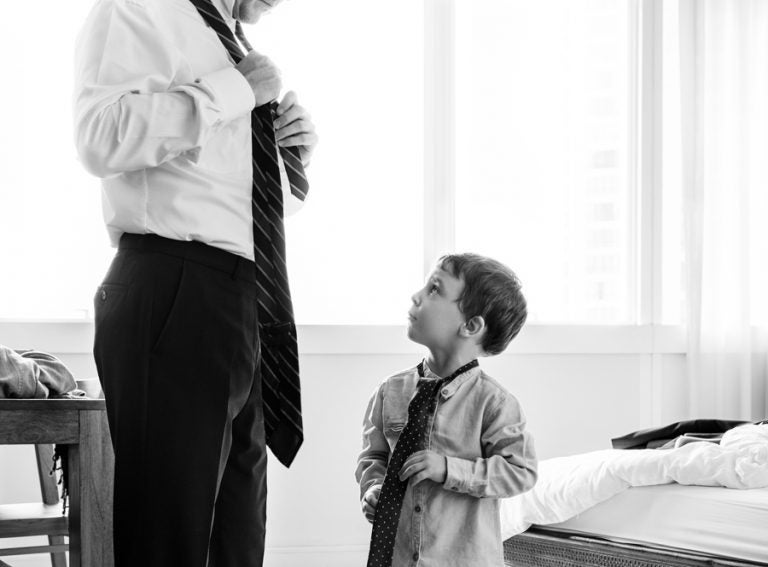Re-educating sexual harassers: What could restorative justice look like?
Can a human being change? Can a culture? It's not too late to begin.

(Rawpixel.com/Big Stock Photo)
Another powerful man is out of a job. Another man shuffling around in his slippers at noon, eating Froot Loops straight from the box and watching (or not) as the women in his life tell interviewers about black eyes and temporary protective orders.
What we are learning is that no sector is immune from sexual violence and coercion, that any woman — actor, chambermaid, Senate staffer, Olympic gymnast — is fair game.
I have to admit some glee in watching heads roll: Harvey Weinstein ousted from the company that bore his name; James Franco digitally erased from a Vanity Fair cover; Rob Porter bounced (a little too late?) from the White House. But I know that for every headliner publicly shamed, there are dozens, probably hundreds, whose offenses are yet to be outed.
Shall we find and fire them all? And then what?
I’ve entertained a fantasy of re-education: Lock those men in a room, make them watch “Thelma and Louise,” read everything Roxanne Gay has ever written, and listen to the soundtrack of “Free to Be, You and Me” until they have it memorized. They’d also have to volunteer — say 100 hours, for starters — in a community-based program headed by a woman. Maybe they’d be tasked with making photocopies or phone calls. Maybe they’d paint apartments for Project HOME or deliver hot meals to clients of MANNA. They’d have to get their hands dirty. They’d have to pack their own lunches.
Mostly, they’d have to listen — because this hands-on service-learning project would also entail a clause of silence. That’s right. The perpetrators would have to shut up. No interrupting. No mansplaining. No verbal innuendo or misogynist jokes, no “Hey, sweetheart, you look hot in that skirt.”
For every hour spent transplanting turnips in a community garden, the men would need to spend 10 minutes sitting quietly in a chair, hands folded, listening to the story of someone less powerful. Ten minutes of silence may not sound like much. But it’s an eon if you’re accustomed to doing all the talking.
When my daughter was an elementary student, in a Philadelphia charter school that practiced peaceful conflict resolution and restorative justice, some fifth-graders were mean to kindergartners one day on the playground. They clambered up the twisty slide and told the little kids they couldn’t use it.
Teachers didn’t smack the older students with detention or pull their recess privileges for a week. Instead, they called for an apology of action and let the kids discuss what that should be. Together, the fifth-graders wrote notes to the kindergarten class: “I’m sorry for pushing. I’m sorry for taking too many turns on the slide. I’m sorry for hurting your feelings.”
Then they invited the younger kids to play outside with them, as buddies, one day the following week.
The aim of restorative justice isn’t to punish. It isn’t to expose bullies and make examples of them. The goal is for the perpetrators of hurtful acts to understand why those acts were wrong. The goal is empathy, and relationship, and repair.
By the time someone is the age of Harvey Weinstein (65) or even Aziz Ansari (34), we’re talking about dismantling decades of entitlement. Which means we’ve got to go upstream, as the social scientists say. We’ve got to unpack the shiny suitcase of privilege that some men — especially white, cisgender men — have been toting all their lives.
That means taking an honest look at how sexism — despite the 19th Amendment and Title IX and the Violence Against Women Reauthorization Act — is baked into our culture. We saw it when Donald Trump stalked Hillary Clinton in the second presidential debate. We see it in the number of women in the Senate (22 out of 100 members). We see it in every effort to curb access to abortion or birth control.
Recently, I judged a Poetry Out Loud contest in which 14 high school girls and three high school boys competed. In the Q&A session as the judges were tabulating scores, one of the boys reached for the microphone to answer the first question. Then the second question came. He held onto the mic and talked, with voluble enthusiasm, in response to that one, too.
The girls (and the other two boys, both of them nonwhite), stood silently. Some looked irritated; others, resigned. No one moved to wrest the microphone from his grip or suggest that it was someone else’s turn to speak.
That’s entitlement, writ small. But when adults fail to disrupt such acts, we perpetuate the gendered tilt that extends all the way to corporate boardrooms and legislative chambers.
So where to start? How about in utero? How about we stop gender-coding behavior (“such a strong kick; he’s going to play football!”) even before infants leave the womb? How about we stop saying, “What a good baby; she hardly ever cries”? How about we strike the phrases “man up” and “don’t be a sissy” from our child-rearing lexicon?
How about we expect our sons to make their beds, fold their laundry and scrub their own damn toilets? How about insisting that they listen as much as they speak — at the dinner table, in the classroom?
How about we let them cry?
I’m convinced that if we dug into the psyches of men recently accused of sexual violence, we’d find a trove of trauma: boyhoods riven by family strife, by harsh discipline, by being on the wrong end of the bullying stick. I think we’d find boys who decided that the way to feel more like a man was to treat someone else — usually a woman — as less than a person.
Can a human being change? Can a culture?
I think about cigarette smoking was when I was a child — a pervasive nicotine haze in hospitals, on elevators. The Marlboro Man loping across the TV screen in commercials that punctuated episodes of “The Dick Van Dyke Show,” which featured plenty of smoking in cars, at parties, and on planes. That’s changed.
So has the dialogue — and the statistics — about drinking and driving.
Forty years ago, alcohol played a role in more than 60 percent of traffic deaths. Now that number has been cut in half. It took a combination of new laws (raising the drinking age to 21), new technologies (Breathalyzer locks on offenders’ cars) and new social practices (designated drivers) to shift the narrative.
Sexism may be more deeply entrenched than smoking and reckless alcohol consumption. But think about South Africa’s Truth and Reconciliation Commission. Think about Germans’ frank efforts to own up to the Holocaust. We in the United States don’t have a great track record of confronting our own abuses of power. But it’s not too late to begin.
There’s a slew of high-octane men who suddenly have a lot of time on their hands. And scores of women who want to explain what it’s been like, all these years. Here’s an assignment, guys. Yes, that means you: Everyone who’s told a frankly sexual joke to a female colleague or hollered “Smile, baby!” to a grown woman. Every man who ever kept going after she said no.
Are you listening? Think about what it would take to teach your sons, your nephews, the next generation of male-identified youngsters, to treat female-identified people as equals.
Don’t argue. Don’t say a word. What would an apology of action look like? You can start right now.
WHYY is your source for fact-based, in-depth journalism and information. As a nonprofit organization, we rely on financial support from readers like you. Please give today.




